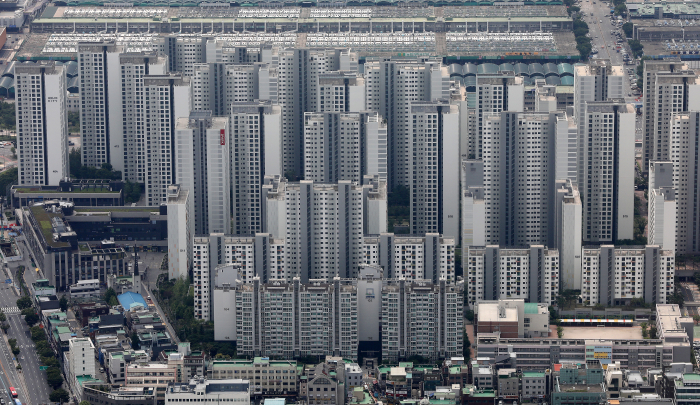Real estate
Moody's sees low risk of burst in S.Korean property bubble
S.Korea's real estate prices are not seen to have risen more than other Asian countries' over the past decade
By Dec 07, 2021 (Gmt+09:00)
1
Min read
Most Read
LG Chem to sell water filter business to Glenwood PE for $692 million


Kyobo Life poised to buy Japan’s SBI Group-owned savings bank


KT&G eyes overseas M&A after rejecting activist fund's offer


StockX in merger talks with Naver’s online reseller Kream


Mirae Asset to be named Korea Post’s core real estate fund operator



South Korea's real estate prices have risen at a rapid pace over the past two years, but that would not indicate an increased risk of loan defaults for domestic banks, a Moody's senior analyst said on Tuesday.
In an online media briefing, Moody's Vice President Brian Oak said that compared with other Asian countries, South Korea's real estate prices cannot be said to have soared more over the past decade.
Despite the recent surge in corporate and household debt, the loan-to-value ratio in the country has remained low relative to other Asian countries. Moreover, a majority of the mortgage borrowers are with high credit ratings, which would lower the risk of loan defaults.
But Oak warned of the negative impact of rising interest rates on the banks' bottom lines, since South Korea is among the countries with the highest corporate and household debt against the gross domestic product.
House prices in South Korea have soared by 43% over the past four years from 2017 when President Moon Jae-in took office. That marked the largest growth among presidential administrations since 1995 when the statistics were first compiled.
The average selling price of apartment units in Seoul surpassed the psychologically important 1 billion won ($850,000) mark for the first time in 2020, almost doubling in seven years.
Moody's added that higher interest rates will hit hard non-banking financial services firms, which are already struggling with tightened lending regulations that raised their financing costs.
As a result, non-banking financial services companies such as credit card issuers and insurers will likely ramp up investments in real estate and overseas alternative investments for higher yields, according to Moody's.
The Bank of Korea delivered its two rate hikes this year, each in August and November, pushing the base rate to 1.0% from a record low of 0.5%.
Write to Eun-jung Kim and Hyun-il Lee at kej@hankyung.com
Yeonhee Kim edited this article.
More to Read
-
 Real estateKorean housing prices soar to $5 tn in Moon admin with record growth
Real estateKorean housing prices soar to $5 tn in Moon admin with record growthJul 23, 2021 (Gmt+09:00)
3 Min read -
 Real estateSeoul apartments’ average selling price tops 1 billion won for first time
Real estateSeoul apartments’ average selling price tops 1 billion won for first timeAug 12, 2020 (Gmt+09:00)
1 Min read
Comment 0
LOG IN


